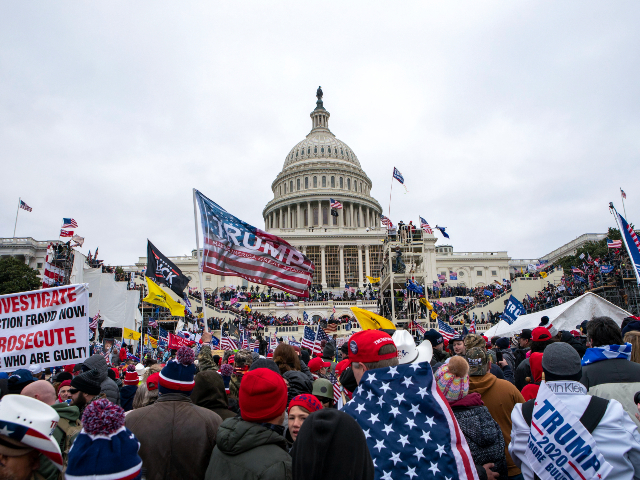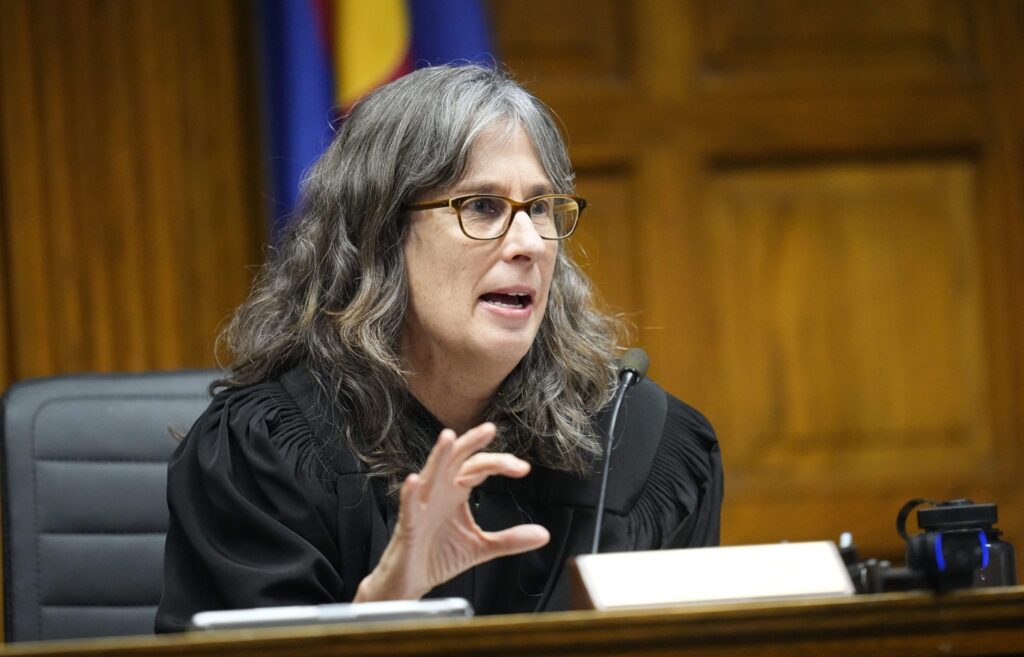Colorado’s Supreme Court heard cross-appeals Wednesday on a case to use the Constitution’s “Insurrection Clause” to prevent former President Donald Trump from appearing on the ballot for the presidency in 2024.
Colorado District Court Judge Sarah Wallace ruled in November that Trump is not an officer of the United States as defined by the Fourteenth Amendment and that the Amendment therefore cannot be used to disqualify him from appearing on the Colorado primary ballot.
While giving Trump a narrow victory, Wallace nonetheless used her ruling to opine that Trump was in fact guilty of insurrection, a factor leading Trump’s attorneys to respond to the plaintiffs’ appeal by filing a cross-appeal.
Wallace’s court “made legal and factual findings wholly unsupported in the law, and these errors demand review – especially if the Petitioners in this matter also seek review of the sole dispositive issue upon which President Trump prevailed,” they wrote.
Much of the hearing was spent on the definition of insurrection.

Support of President Donald Trump rally at the U.S. Capitol on Wednesday, Jan. 6, 2021, in Washington. (AP Photo/Jose Luis Magana)
During Wednesday’s hearing, Trump’s lawyer did concede the events at the Capitol on January 6 were “unacceptable” but argued they “were more like a riot, and far less than a rebellion, and insurrection is far closer to rebellion than riot.”
“The use of force did not involve arms,” he argued, “certainly not the level of arms necessary to overcome” law enforcement.
Justice William Hood pushed back, saying, “there were a lot of makeshift weapons that did a lot of damage” and that approximately 170 police officers were injured.
Justice Carlos Samour expressed concerns with Wallace’s definition of an insurrection, a good sign for Trump. “I’m expressing a concern about the definition of insurrection that the district court adopted,” he said. “It strikes me as somewhat or potentially overbroad.”
In her ruling, Wallace said, “An insurrection as used in Section Three of the Fourteenth Amendment is (1) a public use of force or threat of force (2) by a group of people (3) to hinder or prevent execution of the Constitution of the United States.”
The court also debated Wallace’s ruling that the “Insurrection Clause” did not apply to the presidency.
“If it was so important that the president be included, I come back to the question, why not spell it out?” Justice Carlos Samour asked a lawyer for the challengers, pointing out that other offices are specified within the text.

Judge Sarah B. Wallace presides over closing arguments in a hearing for a lawsuit to keep former President Donald Trump off the Colorado ballot, Wednesday, Nov. 15, 2023, in Denver. (AP Photo/Jack Dempsey, Pool)
Beyond the substance, there is no legal consensus on whether the challenge to Trump’s eligibility should be appropriately considered before the Republican primaries, before the general election, or before the inauguration.
“By failing to resolve this issue on the merits now, we create the potential for chaos in January of 2025,” said Hood.
Regardless of the outcome, the case is likely to be appealed to the Supreme Court, which has never ruled definitively on the meaning of Section Three of the Fourteenth Amendment. Ballots for Colorado’s primary, which takes place March 5, 2024, must be certified by January 5.
The lead plaintiff in the case is Citizens for Responsibility and Ethics in Washington (CREW), a watchdog nonprofit. Although claiming to be bipartisan, CREW has received criticism for its “partisan vendetta against conservatives and Republicans.”
The lawsuit is one of many filed in states across the country citing the Fourteenth Amendment’s “Insurrection Clause,” which bans those who “engaged in insurrection” from holding federal office, as justification for booting Trump from the ballot.
CREW and other liberal groups strategically filed cases in jurisdictions across the country to keep Trump off the ballot in what his supporters have termed “lawfare,” but Trump has received favorable outcomes in New Hampshire, Minnesota, Michigan, and now, Colorado.
The case is Anderson v. Griswold, No. 2023SA300, in the Colorado Supreme Court.
Follow Bradley Jaye on Twitter at @BradleyAJaye.

COMMENTS
Please let us know if you're having issues with commenting.